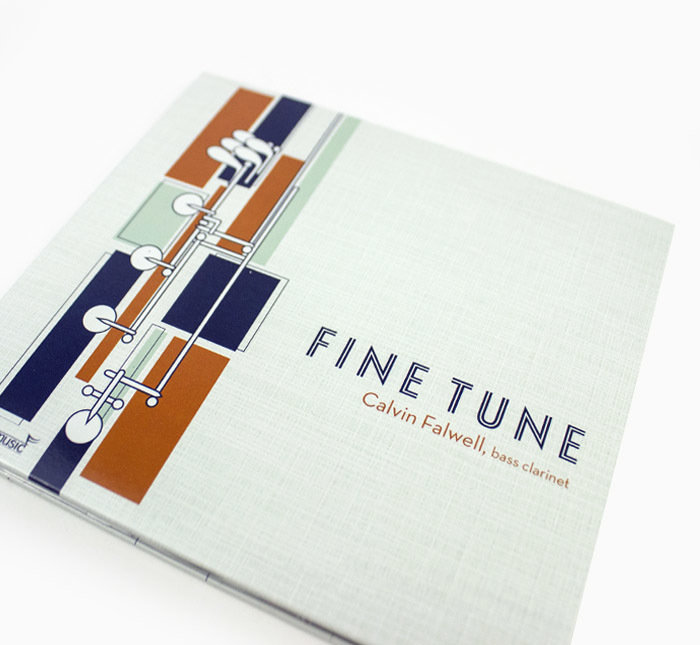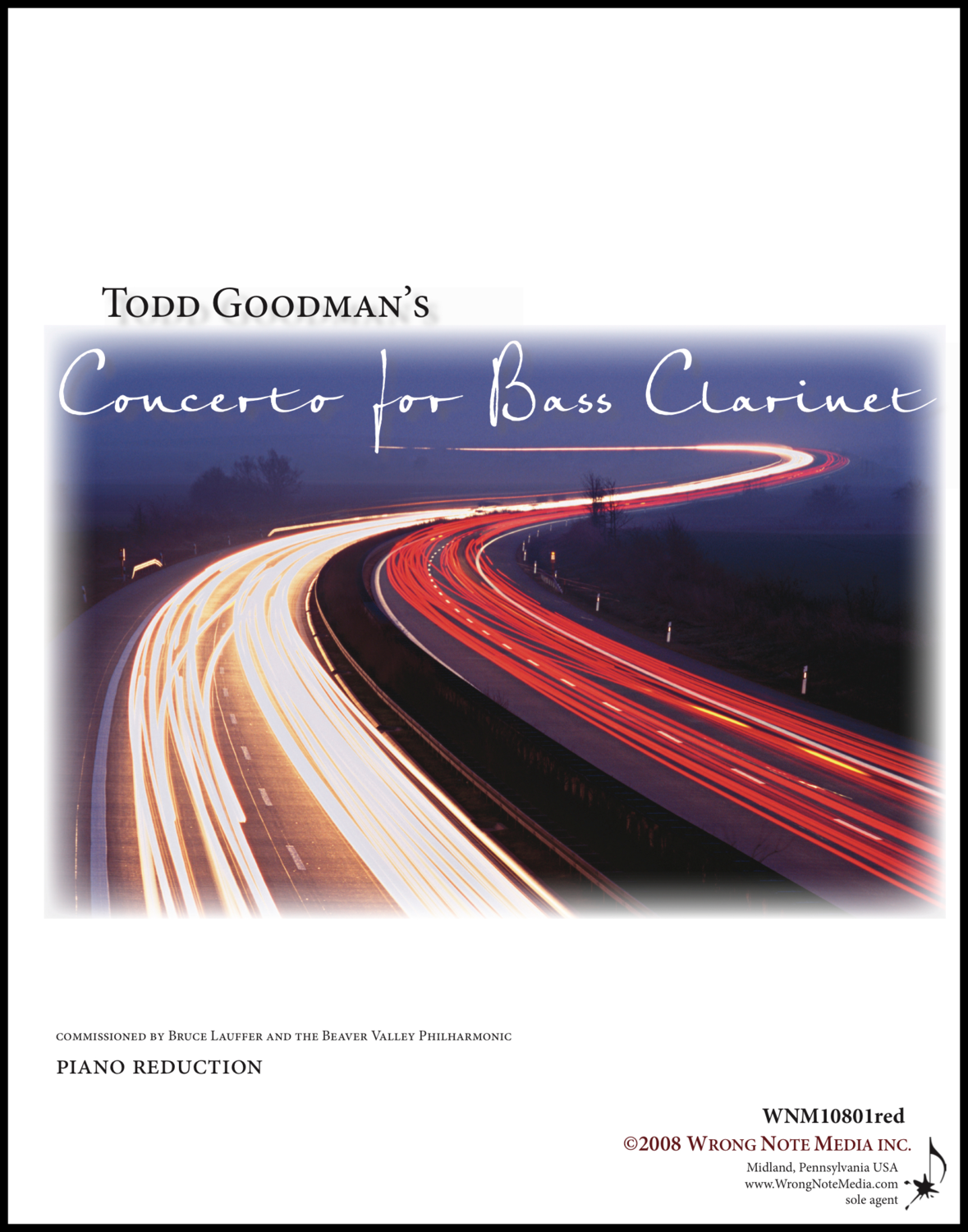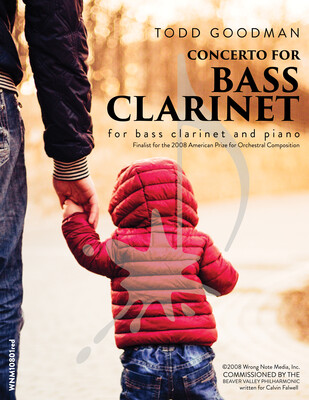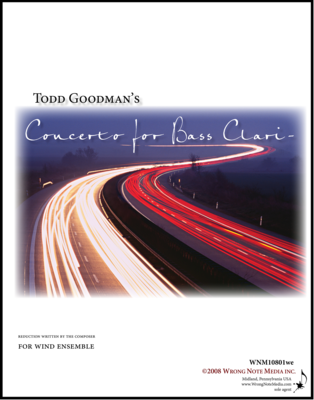CONCERTO FOR BASS CLARINET (Orchestra) by Todd Goodman
ABOUT THE WORK
SCORED FOR: solo bass clarinet, flute, oboe, Bb clarinet, bassoon, horn in f, trumpet in c, trombone, tuba, timpani, 2 percussionists, harp, piano, strings (max 6:6:5:4:3 min 1:1:1:1:1).
TOTAL TIME: [20:00]![]()
2011 American Prize Finalist
PERUSE THE SCORE
PROGRAM NOTES
Todd Goodman’s Concerto for Bass Clarinet and Orchestra was commissioned by Bruce Lauffer and the Beaver Valley Philharmonic to conclude their 2008-09 season. The work, in two movements, takes the orchestra and soloist through a passionate journey of the relationship between a child and a parent. The first movement, Promenade Comique, translated as funny walk, is an argument between the orchestra, acting as the parent and the soloist, representing the child. The orchestra begins the movement with a strict and serious march, which is constantly interrupted by a jocular bass clarinet. As the march progresses, both the bass clarinet and the orchestra get more and more frustrated with one another leading to an explosion of tempers. A repetitious figure is heard pulsing in the orchestra as the soloist sings a subdued lyrical aria in its attempts to calm the angered parent. As the frustration level slowly abates, a variation of the march comes back, yet this time the roles are reversed. The bass clarinet is trying to be serious and the orchestra interrupts with funny gestures from the opening. This culminates with a return to the opening march with the characters playing their appropriate roles.
The second movement, A Berceuse et Rêve, translated as A Lullaby and Dream reverses the roles of the two characters and tells the story of a parent, this time represented by the bass clarinet who is trying to put their child, the orchestra, to sleep. The orchestra begins with unrest and mystery and bursts into an extremely energetic figure, which is repeated throughout this movement as a sign of the child’s procrastination. In-between these energy bursts, the soloist tries to calm the child by singing to it a simple lyric lullaby. Each time the parent is interrupted, the lullaby becomes more prominent and overcomes the tired orchestra. As the lullaby comes to a close, the child starts to dream wild images of various dances. These dances move throughout the ensemble as its principal members dance with the bass clarinet in soloistic duets, trios and quartets. Hints of the lullaby, that are fresh in the head of the child, return throughout the dream which ends with an abrupt simultaneous eruption of all the dances, waking the child. The parent in one last effort sings a fraction of the lullaby, ending the piece.
LISTEN TO THE WORK

MOVEMENT ONE: Promenade comique
MOVEMENT TWO: A berceuse et rêve
COMMERCIAL RECORDINGS

Potenza Music, Inc.









